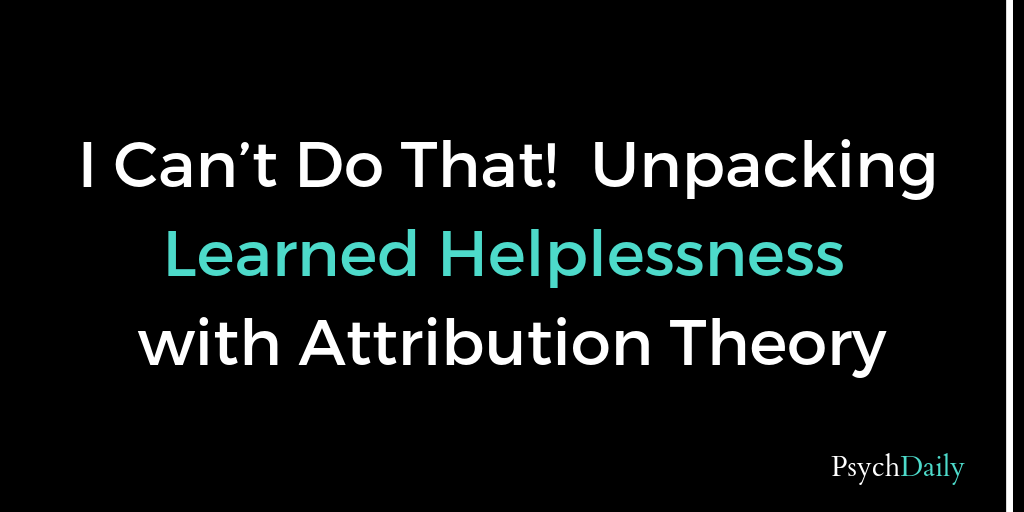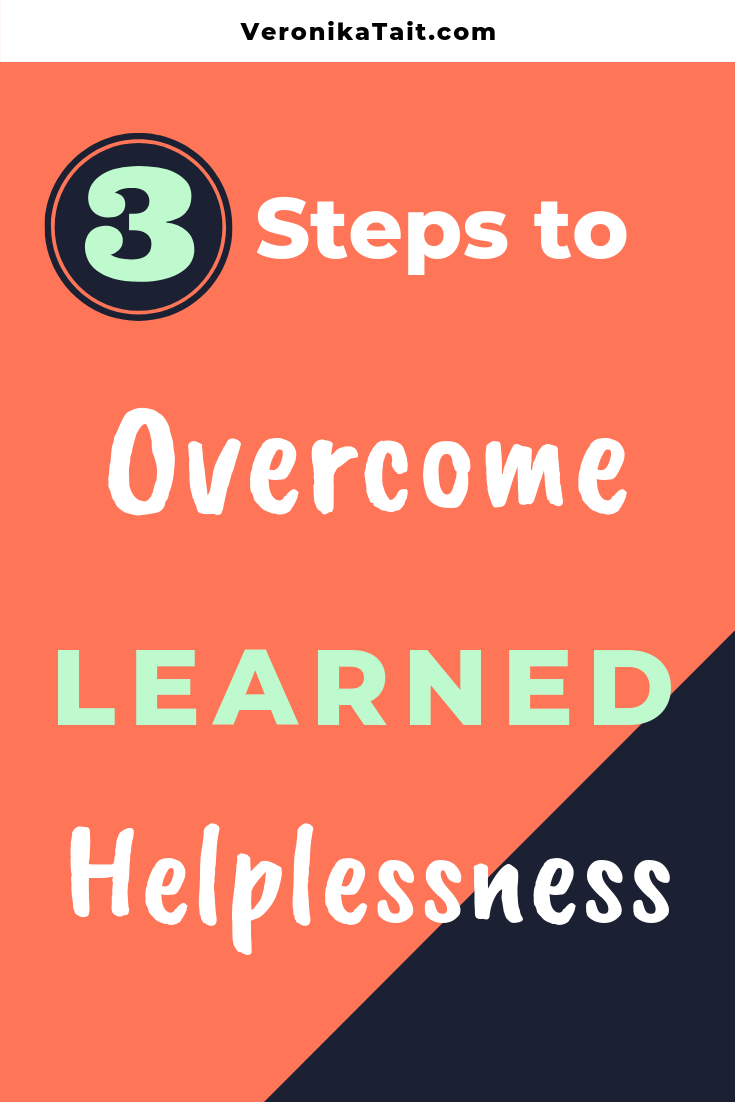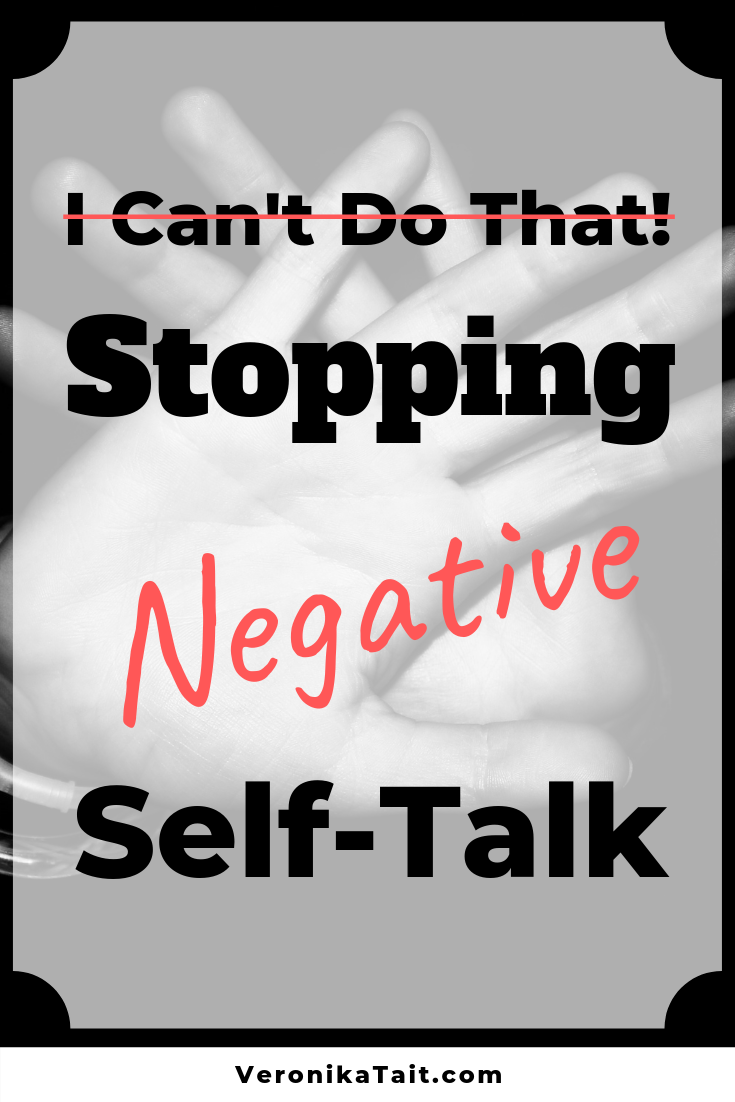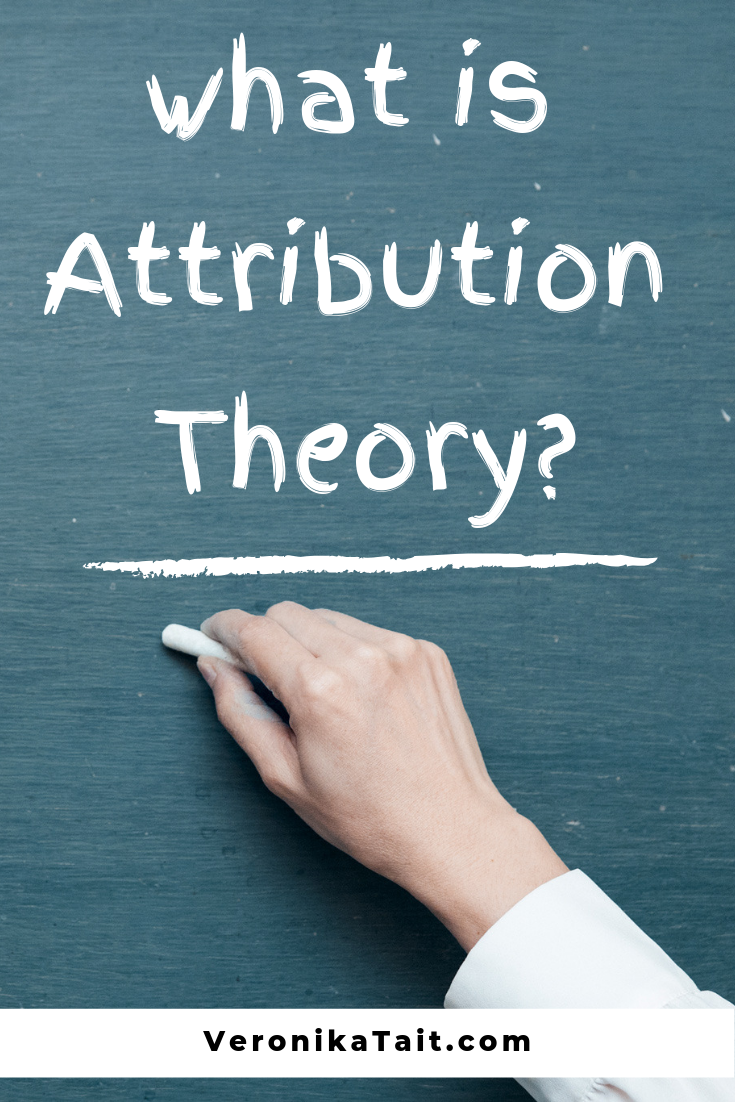I Can’t Do That! Unpacking Learned Helplessness with Attribution Theory

Talk to yourself like you would to someone you love.
-Brené Brown
Growing up, I was number 6 of 7 children. With 3 older brothers, it was unheard of me for to mow the lawn, change a tire, or replace a lightbulb. If I struggled with getting the pinball game to load on the computer (90s kids know what I’m talking about), there was always someone right there to step in and do it for me. This assistance was so frequent and expected that often I would hand my brother a jar of pickles to open before even giving it a try myself. This well-meaning support set my mind on a path of helplessness, thinking that perhaps I wasn’t capable of these tasks anyhow.
Though my experience of helplessness was mild, many people, especially those who were abused or struggled with unaddressed problems such as learning disabilities, can experience devastating consequences. This was illustrated with the classic study on learned helplessness by experimental psychologist Martin Seligman. He found stark differences in whether a dog would escape a painful shock based on his previous experience with shock. In one case, the dog was shocked but had the ability to escape. This dog would persist in trying to escape in later trials. For another dog, there was no behavior that would remove the painful shock. As Seligman said, “A typical dog which has experienced uncontrollable shocks before avoidance training soon stops running and howling and sits or lies, quietly whining, until shock terminates.” When the dog had faced uncontrollable adversity, he had learned to give up rather than persist in his efforts.
This need for control (discussed here in the context of parenting) is again painted vividly with rats wherein one received a shock each time he pressed a bar for food, and the other received a shock when his partner in the adjacent cage pressed the lever. Both rats experienced stress from the painful shock, but the first one controlled when the shocks occurred and the second could not. The lack of control on the latter led to a dramatically increased stress response, and subsequent deterioration and dysregulation in its brain.
How might this manifest in children who experience trauma? In the book, The Boy Who Was Raised as a Dog, the author describes the account of a school-aged girl who was being sexually abused. For several months her mother’s boyfriend would drink and subsequently take advantage of the young girl. It was traumatic, unpredictable, and painful for her. After a while, she started dressing provocatively and handing him drinks as a way to control the situation. It was much less traumatic to know when the abuse was coming than to not. Her former anxious demeanor transformed, lowering her resting heartbeat and masking to her family the troubled and wounded little girl.
As this exemplifies, lack of control can lead not only to learned helplessness, but also to self-handicapping or self-sabotaging behaviors. Psychologist and learning expert Jeanne Ellis Ormrod said:
Learned helplessness may actually be a roundabout way in which people actually try to maintain a sense of control in chronically adverse conditions…because they are unable to change their environment, they instead accept their circumstances, recognize their limitations, acknowledge that factors beyond themselves are ultimately in charge, and try to identify a silver lining in their unhappy situations.
Learned helplessness can manifest is a variety of ways, with a range of severity, so the best method to address it is also going to vary. These three steps can be a great start:
Regain Control and Stability
Learned helplessness is created when someone is forced to bear repeated adversity without the ability or willingness to avoid these situations. Their efforts have not been reinforced, and behavior without reinforcement extinguishes. A child with an undetected learning disability will have a difficult time changing to an optimistic mindset if their efforts have always been compared to their advanced peers. A long history of failures is hard to overcome. As Albert Einstein said, “Everybody is a genius. But if you judge a fish by its ability to climb a tree, it will live its whole life believing that it is stupid.” Pinpoint areas where you have felt helpless and change your environment. This may mean leaving a controlling partner, switching to a job better suited for your skill level, etc. Seek help with a trained psychologist to help you regain control in healthy ways.


Apply Healthy Attributions by Fostering Optimistic and Positive Self-Talk
Failures can be explained by others in a variety of ways. Attribution theory describes explanatory styles with three dimensions. It can be internal or external, stable or unstable, and controllable or uncontrollable.
Internal or External Locus. Behavior can be attributed to a factor within a person such as thinking someone has many friends because of her inherent charm. Other internal explanations may comprise gender, effort, mental or physical state, etc. It can also be attributed to factors outside of a person such as getting a bad grade because the teacher was in a bad mood. External attributions can include the actions of others, the weather, random chance, etc.
Stable or Unstable. Events can be the result of factors seen as unlikely to change in the future. Examples include assuming a classmate is bad at math because she’s a girl or thinking someone is quiet at a party because he is naturally introverted. Other stable explanations may include inherited ability, personality, etc. Events can also be attributed to factors that are unstable such as someone’s driving was poor because he was tired, or a toddler lost his patience because he was hungry. Unstable factors can include effort, health, energy level, luck, etc.
Controllable or Uncontrollable. Saying a student’s success in school was due to her hard work attributes the behavior to controllable factors. Other controllable explanations could be hunger, attitude, etc. Explaining a speeding ticket on bad luck places it out of one’s control. Other uncontrollable factors may include inherited ability, personality, actions and attitudes of others, etc.
One study conducted in the UK found that an induced belief that failure was both beyond control and unlikely to change led to lower self-efficacy and worse performance. Recognize when you’re attributing failures to external, stable, and uncontrollable factors. Pay special attention to your own attributions and practice framing outcomes in ways that don’t globalize your failures.



Seek supporters who instill confidence and scaffolding.
Unlearning helplessness begins step by step. Being a part of a big family, we owned a large 15 passenger van. As a 15-year-old first learning to drive, it looked like an absolute death trap. My parents likely viewed it similarly, knowing how inexperienced I was. I refused to drive that van and always insisted that I drive the smaller 5-seat Nissan instead. They agreed and to this day I have never driven a vehicle even remotely that big. The ability to drive a huge van still feels beyond my ability. However, my parents likely could have given me verbal encouragement that I do in fact have the ability to manage a large van and supported my efforts to gain the ability. Support could have looked something like this. First, we’d master navigating the parking lot together. Then, the neighborhood. Eventually, I’d be alone. On the freeway. In the dark. And with music playing. Overcoming past failures can be done with each small success. Do not overwhelm yourself by taking big tasks on all at once. Seek help and support to succeed one step at a time.
Everyone has areas of their life where they think, I can’t do this. Talk back to that voice and with optimism. Gain control, use positive self-talk, and seek help.
As the old saying goes, what would you do if you knew you could not fail?


